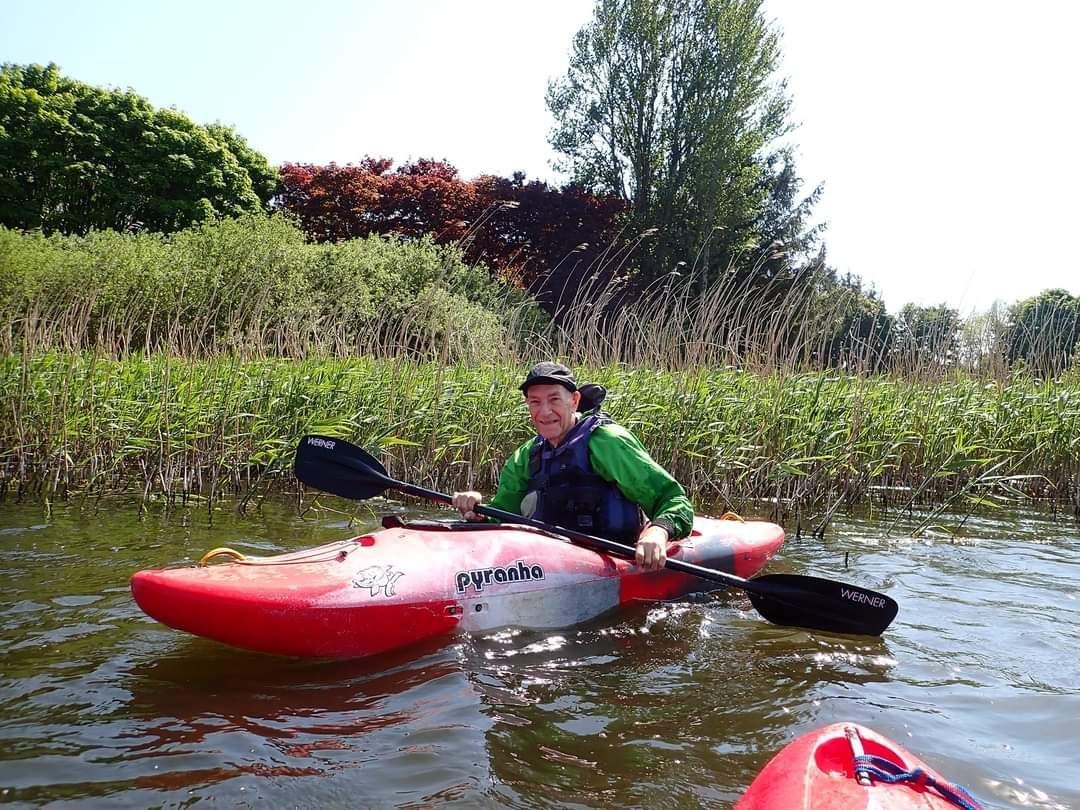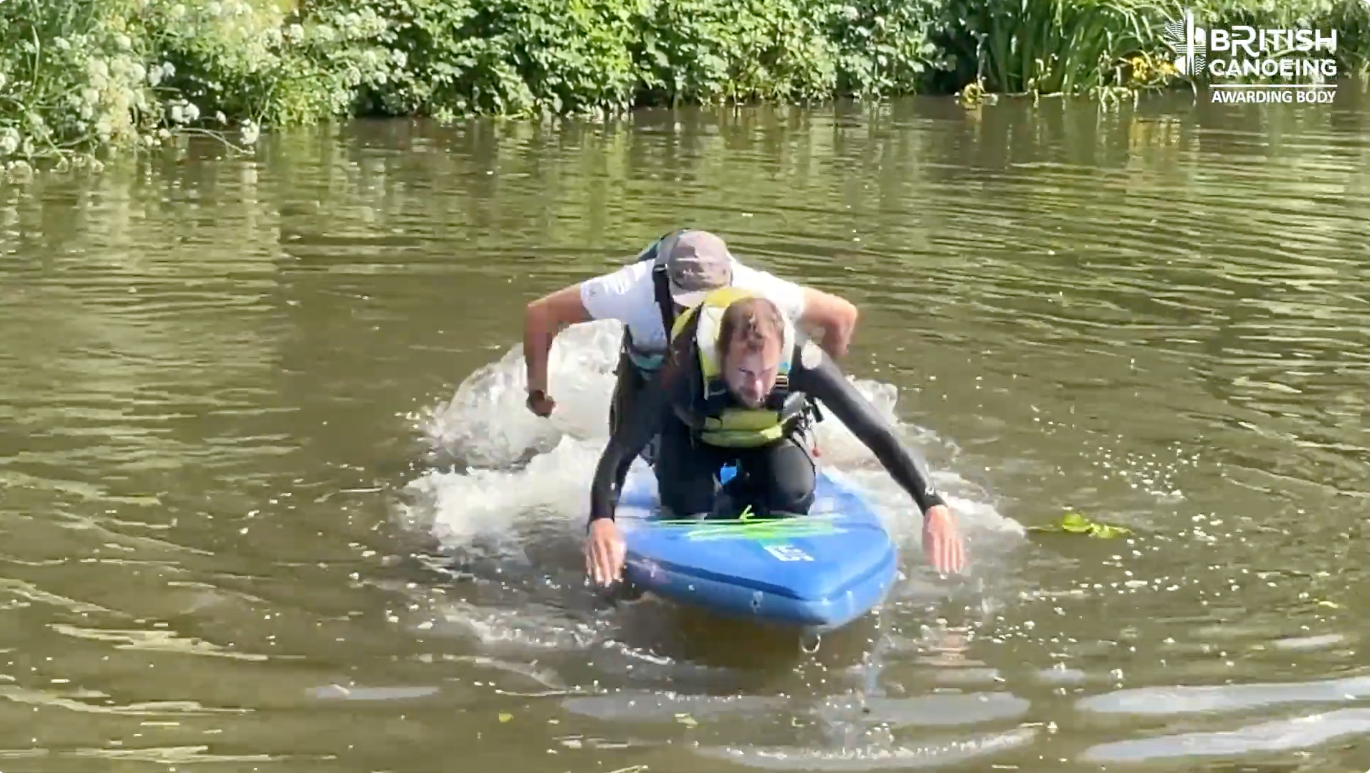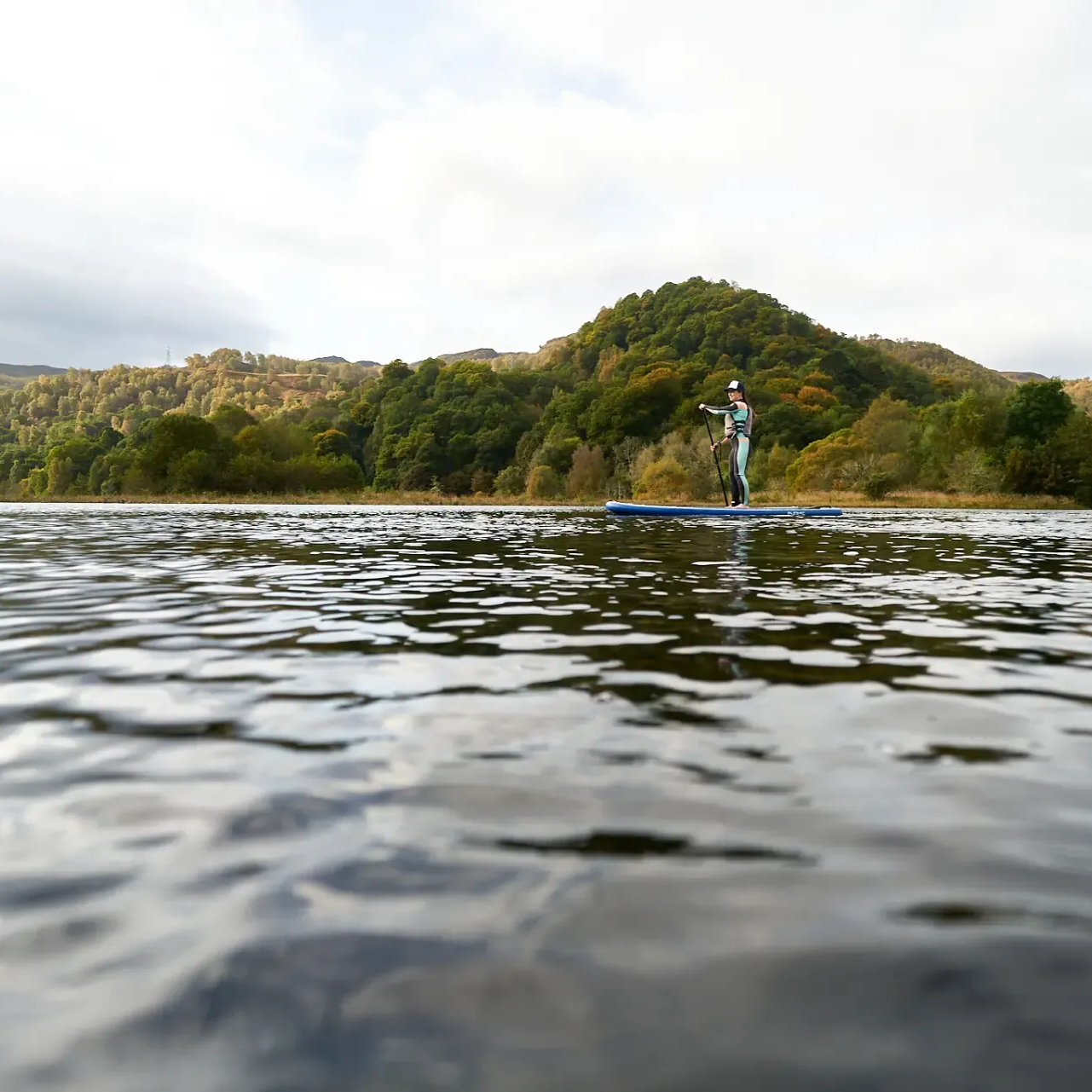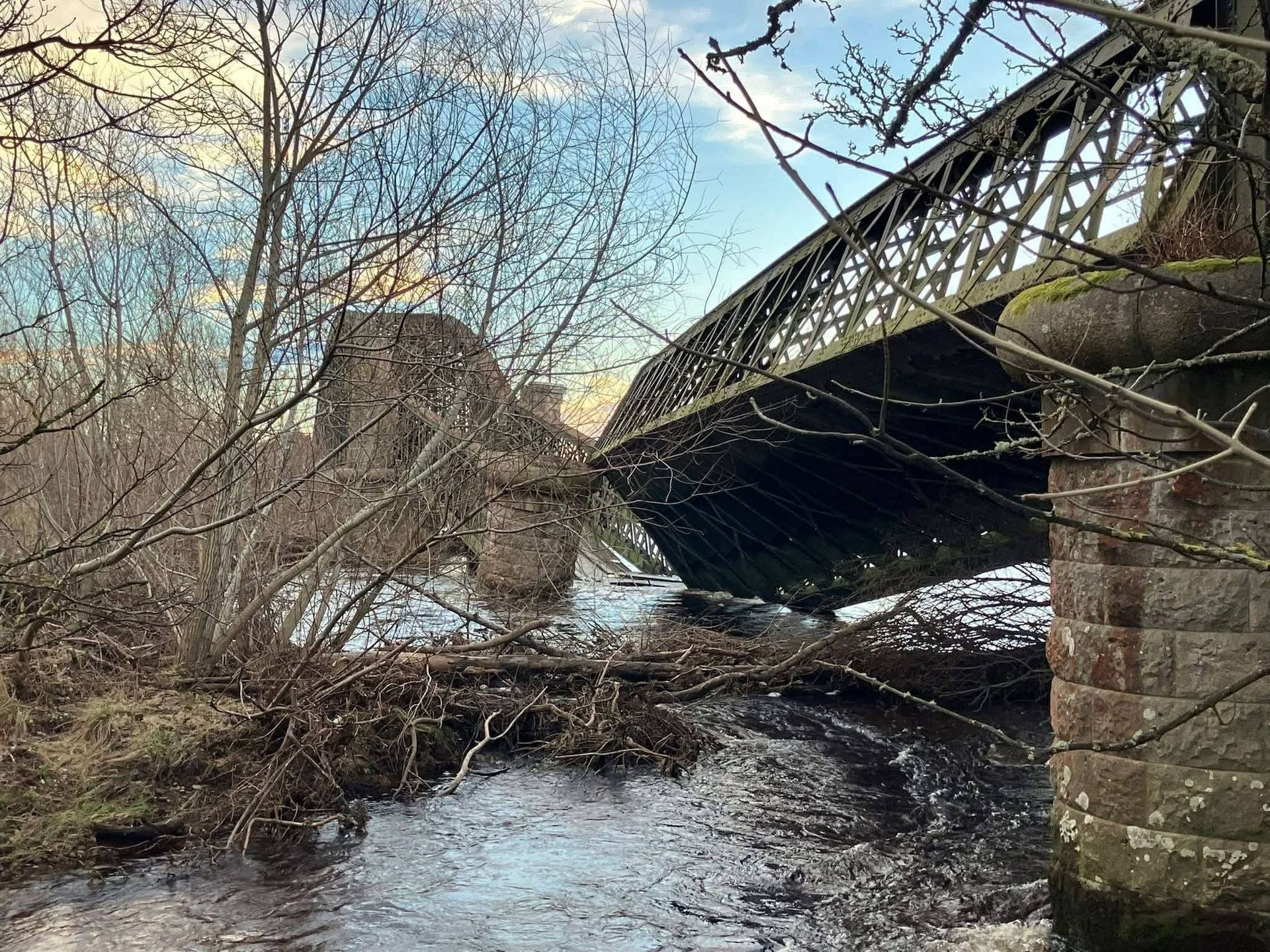This article was written by longtime paddler and active SCA/Paddle Scotland member, Eddie Palmer, shortly before his passing in 2024. It was originally published in the January 2025 edition of the Scottish Paddler magazine.
EMBRACING CHALLENGES AND STAYING ACTIVE
Aging is an inevitable part of life, but staying active, especially in activities like paddling, can become increasingly challenging as we grow older. This article reflects on the experiences and challenges of our good friend and long-term paddler/volunteer with Paddle Scotland, Eddie Palmer. Eddie shares insights into how to continue enjoying the sport, even as our bodies change. These impressions, gathered from personal experiences and discussions with fellow paddlers, serve as a guide to help others navigate the physical and mental adjustments that come with aging.
Facing the Realities of Aging While Paddling
As we age, the way we engage in physical activities like paddling inevitably changes. For many, this becomes most apparent when health issues arise. For example, I recently faced heart failure, which forced me to dramatically scale back my paddling – a pastime that has always brought me immense joy, particularly on the scenic rivers of Scotland. While it was frustrating to limit my time on the water, I remained hopeful that with proper medical treatment, I would regain enough strength to return to paddling soon.
However, conversations with an old paddling friend highlighted that the challenges of aging extend beyond illness. Whether it’s dealing with a knee replacement, diminished stamina, or simply the limitations that come with aging, we both realized that continuing to paddle into old age requires more than just physical endurance—it calls for adaptability and a willingness to face new realities.
A Changing Relationship with Paddling
Looking back on my journey with paddling, it’s clear that the sport has evolved for me at different stages of life. At 40, I was racing in Division A of wild water kayaking on grade 4 rapids. By 60, I had moved into open canoe sailing and was traveling around the UK writing guidebooks.
Despite my passion, time has taken its toll, and the two knee replacements I’ve had have certainly impacted my ability to kneel while paddling or even exit a kayak with ease.
This shift in physical ability has raised some important questions about how aging paddlers can continue to enjoy the sport without compromising their health or comfort. What are the things we can’t do anymore? And perhaps just as important, what do we no longer want to do as we get older?
Common Challenges Older Paddlers Face
Together, my friend and I compiled a list of the most common challenges older paddlers face. These might not seem like major issues to younger, more able-bodied paddlers, but they can significantly impact the enjoyment of the sport for those of us in our later years. Here are a few:
- Experience vs. Expectations: After decades of paddling, experienced paddlers don’t always need to follow every standard protocol. For example, breaking out at every little rapid might be a skill we mastered long ago, and it can be frustrating to feel obligated to do so when we know it’s unnecessary.
- Short Breaks Over Long Breaks: Older bodies don’t always fare well with long periods of inactivity. A lengthy lunch break can make us cold and stiff, making it harder to get back on the water. Short, frequent breaks can be more beneficial.
- The Myth of ‘No Pain, No Gain’: The saying “exercise isn’t working unless it hurts” can be harmful, especially as we age. Overexertion can lead to injury or further health complications. Learning to listen to our bodies and paddle at a pace that feels right is crucial.
- Mobility and Flexibility: As we age, our flexibility diminishes. This is one reason why sit-on-top kayaks have become more popular among older paddlers—they offer easier entry and exit. Knee replacements, hip problems, and general stiffness make traditional kayaks more difficult to manoeuvre.
- Declining Vision and Hearing: It’s no secret that age can affect our senses, including vision and hearing. For paddlers, this can mean missing important visual cues or struggling to communicate with fellow paddlers. Adjusting to these changes, and finding equipment or techniques that compensate, can help keep us safe on the water.
Adapting to Keep Paddling
Despite these challenges, there are ways to adapt and continue paddling well into old age. One of the key takeaways from my conversations with fellow older paddlers is that we need to let go of certain expectations we held in our younger years. Paddling doesn’t have to be about conquering the most challenging rapids or maintaining the same speed and stamina as before. Instead, it’s about finding new ways to enjoy the sport at a pace that suits our current abilities.
This could mean switching to a more comfortable style of boat, like a sit-on-top kayak, or taking shorter trips that allow for more frequent breaks. It could also involve seeking out less physically demanding routes, where the beauty of the landscape can take centre stage over the thrill of fast-moving water.
Additionally, it’s important to recognise the value of maintaining an active lifestyle in old age. While we may not be able to paddle as vigorously as we once did, staying active is crucial for both physical and mental well-being. Paddling can be a meditative, calming activity that provides a sense of accomplishment and connection to nature – things that are just as valuable in later life as they are in youth.
Moving Forward with Grace and Gratitude
Ultimately, getting older and continuing to paddle is about adjusting expectations and finding joy in the experience rather than focusing on what we can no longer do. Aging offers its own wisdom and perspective, which can deepen our appreciation for the simple pleasures of paddling – the sound of water, the sight of a peaceful river, and the company of good friends.
The aging process will inevitably bring limitations, but it can also bring a sense of gratitude for the ability to keep moving forward. With the right mindset, paddling can remain a lifelong passion, even in the face of physical challenges.
So, to the older folk who paddle: keep going! Adapt where you must, paddle at your own pace, and remember to enjoy every moment on the water.













